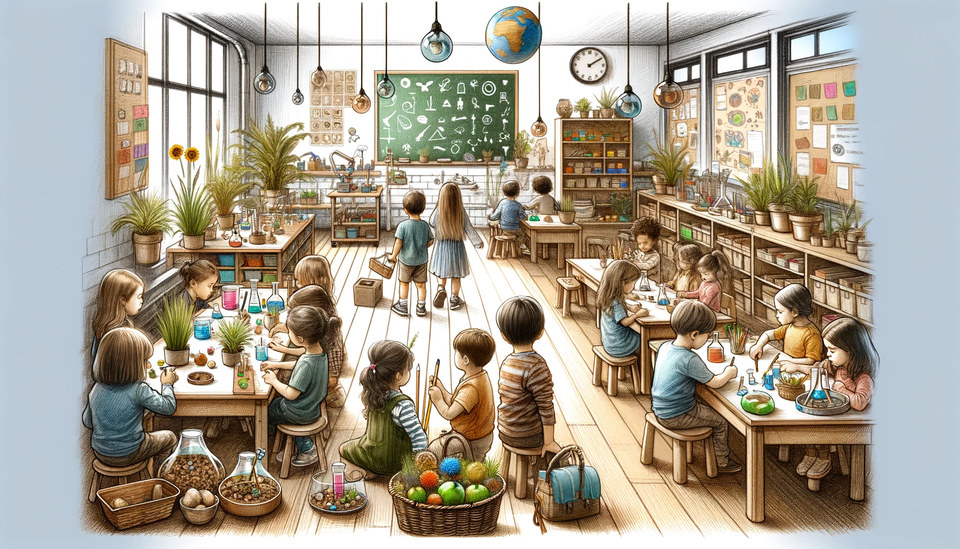Understanding Montessori's Planes of Development

Introduction
At the heart of Maria Montessori's revolutionary approach to education lies a deep understanding of human development. She identified four distinct planes of development, each with its unique characteristics and developmental needs. This understanding is pivotal at Noble World Montessori School, where we align our educational approach to nurture children's growth in the First Plane.
The Concept of Developmental Planes
Maria Montessori's theory divides childhood into four developmental planes, each spanning approximately six years. These planes guide educators in creating environments and experiences that meet the children's natural tendencies and developmental needs. The philosophy recognizes that each plane is markedly different from the others, both physically and psychologically, necessitating a tailored approach in education.
Key Characteristics of Each Plane
- First Plane (0-6 years): This plane is characterized by intense sensory exploration and the development of language. Children absorb information effortlessly from their environment, making it a critical period for laying the foundation of learning. At Noble World, we emphasize hands-on activities and sensory experiences to cater to these needs.
- Second Plane (6-12 years): Here, children develop abstract thought and imagination. They become more socially aware and begin to understand their place in the world. After Noble World, the ideal school program will include more collaborative projects and exploratory learning, fostering a sense of community and discovery.
- Third Plane (12-18 years): Adolescents seek to understand their social roles and moral standings. They crave independence and the opportunity to make meaningful contributions. While Noble World caters to younger children, the Montessori approach for this age group focuses on real-world application and ethical learning.
- Fourth Plane (18-24 years): This final stage is about self-construction and preparation for adult life, with an emphasis on finding one's place in the world.
How Montessori Education Supports These Developmental Stages
At Noble World Montessori School, our environments and materials are thoughtfully designed to align with these developmental planes. In the first plane, for example, our classrooms are rich in sensory experiences and practical life activities. As children progress to the second plane, our focus shifts to collaborative learning, fostering a sense of community, and encouraging exploration and abstract thinking.
Conclusion
Understanding the Montessori planes of development is crucial for parents and educators. It guides us at Noble World Montessori School to provide a nurturing and stimulating environment that aligns with the First Plane developmental stage. This approach prepares children holistically for life's challenges and opportunities, ensuring they develop not just academically but as well-rounded individuals.